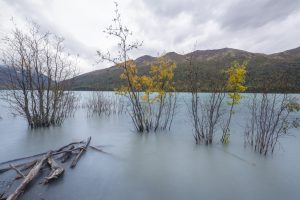Natural disasters are the single most destructive force known to mankind, with the ability to destroy towns in a few short minutes. Whether it’s earthquakes bringing down buildings, tsunamis washing them away or hurricanes carrying away anything in their path, they all leave huge trails of destruction.
 It’s not just tsunamis that cause floods either, an earthquake can rupture water supply pipes and quickly cause floods of their own, or even trigger tsunamis themselves. The damage water does is extreme, with homes being wrecked, businesses interrupted for extended periods, and authorities left paralysed in helping citizens until the water subsides. Infrastructure in terms of drainage can only do so much, and that in itself can be destroyed when disaster strikes.
It’s not just tsunamis that cause floods either, an earthquake can rupture water supply pipes and quickly cause floods of their own, or even trigger tsunamis themselves. The damage water does is extreme, with homes being wrecked, businesses interrupted for extended periods, and authorities left paralysed in helping citizens until the water subsides. Infrastructure in terms of drainage can only do so much, and that in itself can be destroyed when disaster strikes.
Only once the immediate threats fade can the clean up begin, and repairing the damage usually takes many years, if it’s ever completed at all. There are two fundamental problems in the immediate aftermath of the disaster, firstly to get food and clean water to those that are affected, and secondly the pressure to get the emergency work started to let the community begin to build up from the ruins.
Agencies like the Red Cross do a remarkable job with distributing supplies, usually launching a fast response within hours of the news of a disaster spreading. Rebuilding, however, is often slower to get moving, and rightly so, as keeping the people alive has to take priority. However, when attention begins to turn to progressing with rebuilding and repairing the damage, there are often limited supplies of materials and tools to do the jobs, even though the communities often have plenty of skilled labour available.
Power tools are often destroyed in flooding – even in these emergency situations it’s not worth risking the use of wet electrical tools, and there’s rarely power restored that quickly anyway. That means that the initial work is typically done with manual tools, the sort that you’ll typically used for small home improvement jobs. Imagine trying to build a house with a hack saw and screwdriver. That’s where some of your generously donated secondary aid money comes in, to replace the power tools once power is restored. You’ve only got to take a look at mitre saw reviews on the internet to see how much each item costs, just think how much needs to be spent to rebuild an entire city, or even an entire region. Fortunately, many of the large companies that manufacture these tools help by donating large quantities of their products, either for nothing or at significantly discounted rates to get the projects underway. There are also fundraisers across the globe that raise money to help the victims of these crises get back to something resembling a normal life as fast as possible.
In the UK, Comic Relief provides such funding, all given by generous gifts from members of the public, corporate responsibility initiatives and government funding. This help is vital when disaster strikes, and your money directly helps feed, cloth and provide shelter for those who are desperately in need, as well as provide essential basic healthcare in those parts of the world where there is no NHS, local GP or hospital to help vaccinate against, or treat diseases.
